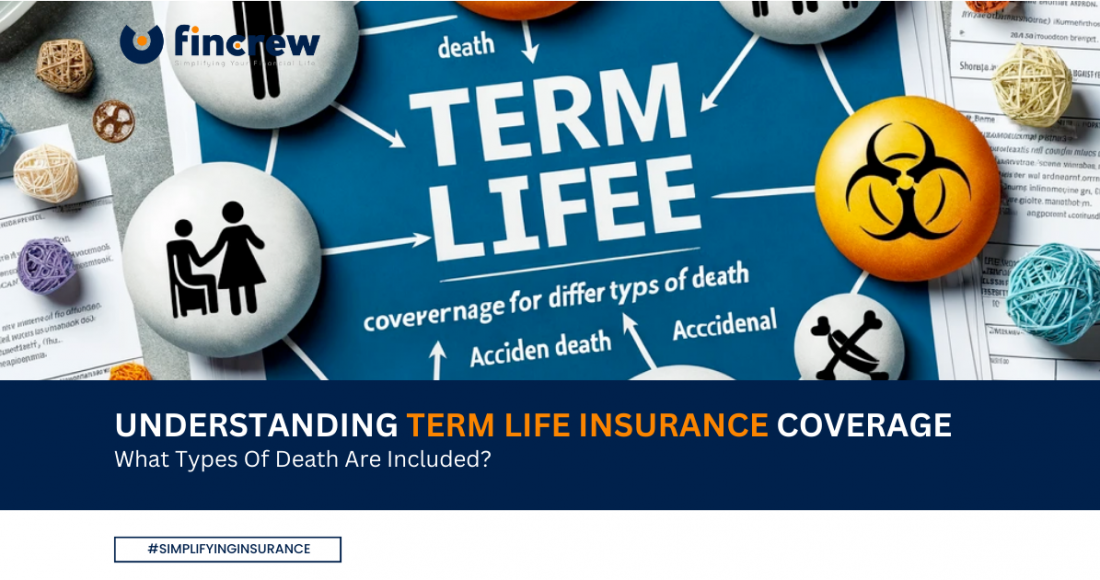One of the most popular insurance options that insurance seekers turn to for securing the futures of their loved ones or for financial planning is term life insurance. However, what is term insurance, how does it work, and what types of deaths are covered and not covered by it? All of these and more will be below.
What Is Term Life Insurance?
A term life insurance plan is also known as a pure life insurance plan because it guarantees a stated death benefit if the insured dies during the period specified in the policy. When a term insurance policy expires, it can either be renewed for another term, converted to permanent coverage, or terminated.
How Term Life Insurance Works
An insurer determines how much you’ll pay for a term life insurance policy by considering your age, gender, and health, as well as the value of the policy (the payout amount). Occasionally, a medical exam is required. In addition to your driving record, your insurance company may ask about your current medications, smoking status, occupation, hobbies, and family history. If you died during the policy’s term, the insurer would pay the policy’s face value to your beneficiaries. Benefit recipients may use the cash benefit to pay for things such as medical care and funeral expenses, consumer debt and mortgage debt. This cash benefit is generally not taxable. When a policy expires before you die, you will not receive any benefits. When a term policy expires, you may be able to renew it, but your premiums will be recalculated based on your age at renewal. There is no value to term life insurance policies other than the death benefit.
Types Of Death Covered By Term Life Insurance
Below is a quick summary of the coverage under term life insurance policies:
Natural causes
A term life insurance policy covers deaths caused by natural causes. Beneficiaries will receive insurance payouts if an insured dies of a heart attack, cancer, infection, kidney failure, stroke, or old age.
Accidents
If an automobile accident, drowning, poisoning, accidental drug overdose, or other tragic events, your term life insurance policy will pay out death benefits to your beneficiaries.
Murder
If murdered, your beneficiaries will receive your death benefit unless they were involved in the murder.
Suicide
Insurance covers suicide. The company will grant the beneficiaries unless the death occurs during the “contestability period” – usually the first two years – assuming there isn’t another exclusion.
Pandemic Illness
A COVID-19 death is a death by natural causes under your existing policy, which means your beneficiaries will receive the benefit. If, however, you apply for a new policy amid an ongoing pandemic and lie about your health or exposure, you will not qualify. If that happens, the insurer may refuse to pay.
Deaths Not Covered by Term Life Insurance?
These are the situations in which your beneficiaries may not be able to collect benefits:
Risky Activities
Risky activities may not be covered, depending on the situation. The following activities are dangerous because they have a high potential for injury or death:
- Scuba diving
- BASE jumping
- Hang gliding
- Auto racing
- Aviation
- Rock and mountain climbing
There are also dangerous jobs in this category, including logging, flying, working on offshore oil rigs, fishing offshore, and working underground as a miner.
Murder
Specifically, the “Slayer Rule” says that if your beneficiary commits murder—or is somehow involved in your murder—they won’t receive a death benefit. Instead, your insurer will distribute your death benefit to your estate or your contingent beneficiaries.
Suicide
Life insurances cover suicide. There is, however, a “suicide clause”-or contestability period-during the first two years of a policy. If someone commits suicide during this period, their life insurance policy won’t cover the cost. If the policyholder dies from a drug overdose during this period, the situation can get messy. In this case, the insurer must demonstrate that the benefit was due to intentional overdose.





